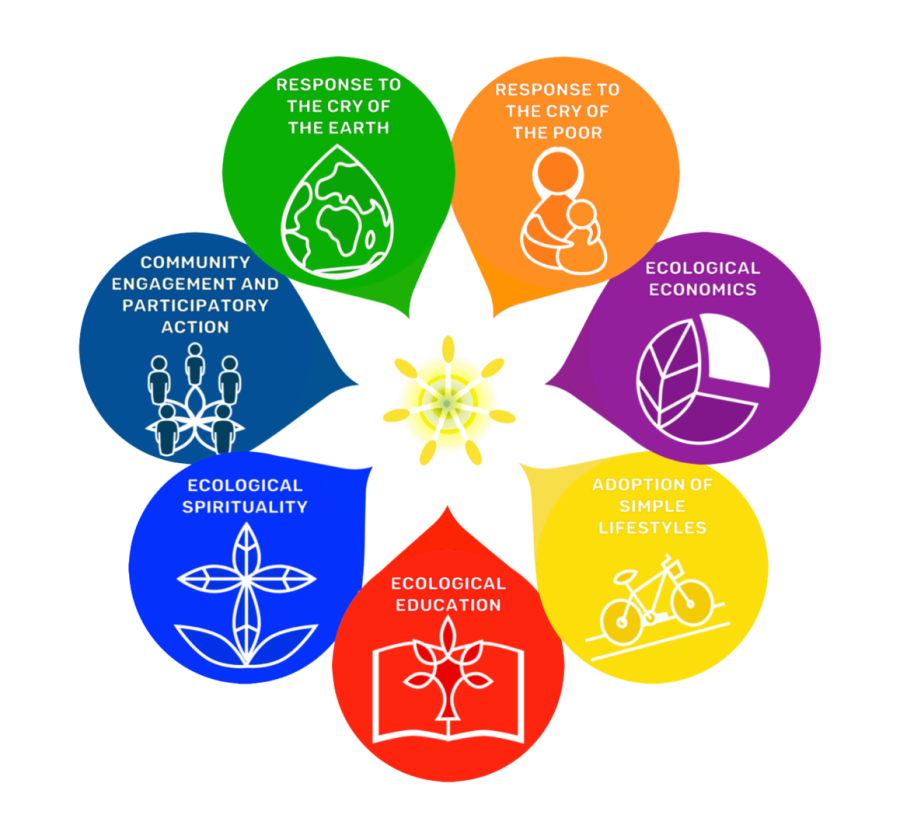KENYA: Franciscan Family in Kenya Seek Ways to Achieve Laudato Si’ Goals

Sr. Jecinter Antoinette Okoth, FSSA
As various actors across the globe device ways on how to implement and realize the seven Laudato Si’ Goals (LSGs) in response to Pope Francis’ invitation on care for creation, the Franciscan family in Kenya are no exemption to this strategy.
Speaking to over 20 online participants of Franciscans both lay and religious who attended the Saturday, July 17 session, the Chairperson for Global Catholic Climate Movement (GCCM), Kenya Chapter Mr. Daniel Kasisi highlighted the seven goals making proposals to the Franciscans on how to journey together and actualize the goals.
“To achieve the goals, we need to undergo eco-conversion. The goals guide our actions, redefine and rebuild our relationships with each other and our common home,” Mr. Kasisi underscored adding that “a holistic approach to the goals acknowledges the planetary limits of all socio-economic systems and the human roots of the ecological crisis.”
Highlighting the first goal, “Responding to the cry of the earth,” the facilitator noted that the goal focuses on how to make the world a better place for the well-being of others and how to equitably address the climate crisis, biodiversity loss and ecological sustainability.”
“As Franciscans, let us install green energy for use in our institution including use of solar panels, insulating buildings and buying renewable energy credits,” Mr. Kasisi said disclosing some of the ways to respond to the first LSG.
“There is need to protect biodiversity by planting native trees, regenerating agriculture, protecting pollinators and going back to organic farming,” he continued.
He noted that the charism of Franciscans embraces care for creation and care for the poor, hence the need to realize the second LSG goal, “Response to the cry of the poor.”
“We are called to defend human life from conception to death, and all forms of life on earth,” Mr. Kasisi said.
He went on to explain that caring for the poor calls for “promoting and protecting indigenous leadership and ensuring that the indigenous people have the right to their lands.”
Addressing the third goal, “Ecological economics,” Mr Kasisi acknowledges that economy is a sub-system of human society embedded with the biosphere and suggested to the Franciscans to “ensure that the dignity of workers is upheld with good jobs, livable wages and benefits.”
Additionally, “Financial investments need to be ethical and sustainable by divesting from fossil fuels, investing in socially responsible enterprises and choosing ethical banking,” he narrated.
The fourth goal which underscores “Adoption of sustainable lifestyle,” the facilitator narrates, is grounded on the idea of sufficiency and promoting sobriety in the use of resources and energy.
He encourages members of the Franciscan family, “to improve sustainability in diets by reducing food wastage, buying food from local producers whenever possible and to transition from meat-based to plant-based meals.”
On the fifth goal which is on “Ecological education” and focuses on rethinking and redesigning curricular and institutional reforms in the spirit of integral ecology to foster on ecological awareness and transformative actions, the facilitator insisted on the need to promote “Laudato Si’ learning opportunities by implementing education plan in relation to care for creation and ensuring that members of the community are familiar with the local ecosystem, science and social dimensions of ecological crisis and virtues.”
He further emphasized “creating opportunities for youth-led events, and developing mechanisms to publicly recognize young people for their leadership.”
And talking about the sixth goal on “Ecological Spirituality” which encourages greater contact with the natural world in a spirit of wonder, praise and gratitude, Mr. Kasisi underscored praying for social and ecological redemption and encouraging community reflection on Laudato Si’ themes.”
He underscored during the Saturday online session that “development of culture and policies that protect our common home and all who share it in the seventh LSG which is “Community engagement and participatory action.”


